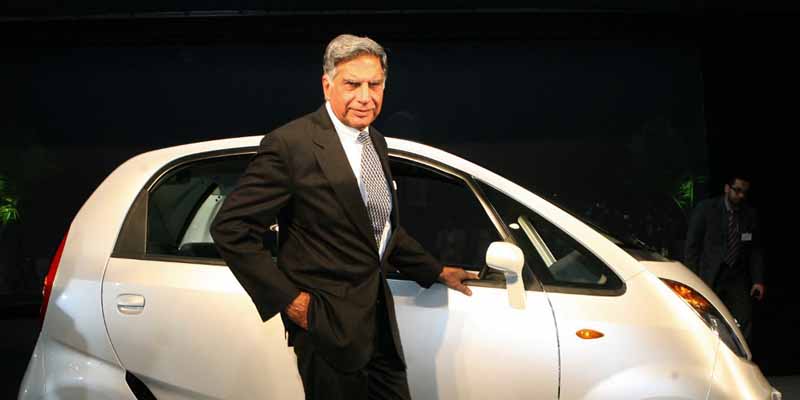- India
- Oct 10
Veteran industrialist Ratan Tata dies at 86
• Tata Group’s chairman emeritus and veteran industrialist Ratan Tata passed away in Mumbai on October 9. He was 86.
• Prime Minister Narendra Modi paid tributes to Tata, describing him as a visionary business leader, compassionate soul and an extraordinary human being.
• Born on December 28, 1937, in Mumbai, Tata’s journey from a young engineer to the chairman of one of India’s largest conglomerates is a testament to his visionary leadership and unwavering commitment to excellence.
• His tenure at the helm of the Tata Group from 1991 to 2012 saw the transformation of the company from a largely domestic entity to a global powerhouse, setting new benchmarks for Indian businesses on the world stage.
• He was the recipient of the country’s second highest civilian honour Padma Vibhushan.
A corporate titan
• Ratan Naval Tata enjoyed a perhaps unique status — a corporate titan who was considered a ‘secular living saint’ with a reputation for decency and integrity.
• He was one of the world’s most influential industrialists yet he never appeared on any list of billionaires. He controlled over 30 companies that operated in over 100 countries across six continents.
• Ratan Tata was the son of Naval and Sooni Tata. He and his younger brother, Jimmy, were brought up by their grandmother, Navajbai Sett, in the family estate known as Tata Palace in central Mumbai.
• In 1955, Ratan Tata left for the United States to study architecture and engineering at Cornell University, Ithaca, New York.
• He joined the Tata group as an assistant in the Tata Industries in 1962.
• He initially worked on the shop floor, gaining experience in a number of Tata Group businesses before being named director in charge of one of them, the National Radio and Electronics Co in 1971.
• He became chairman of Tata Industries a decade later and in 1991, took over as the chairman of the Tata Group from his uncle, J.R.D. Tata, who had been in charge for more than half a century.
• This was the year when India opened its economy and Tata soon turned the group, which began as a small textile and trading firm in 1868, into a global powerhouse with operations stretching from salt to steel, cars to software, power plants and airlines.
• He was the chairman of Tata Sons, the group’s main holding company, for more than two decades during which the conglomerate aggressively sought to expand, acquiring London-based Tetley Tea in 2000 for $431.3 million, buying truck-manufacturing operations of South Korea’s Daewoo Motors for $102 million in 2004, paying $11.3 billion to take over Anglo-Dutch steel manufacturer Corus Group and spending $2.3 billion to purchase elite British car brands Jaguar and Land Rover from the Ford Motor Company.
• He founded telecommunications firm Tata Teleservices in 1996 and took IT firm Tata Consultancy Services public in 2004.
• His pet projects at Tata Motors included the Indica and Nano, which was touted as the world’s cheapest car.
• Along with being one of India’s most successful business tycoons, he is also known for his philanthropic activities. His personal involvement in philanthropy began early. In the 1970s, he initiated The Aga Khan Hospital and Medical College project, laying the foundation of one of India's premier healthcare institutions.
• After his appointment as the chairman of Tata Sons in 1991, Tata’s philanthropic efforts gained new momentum. He actively steered the Tata Trusts, established by his great-grandfather Jamsetji, towards addressing vital social needs and set up institutes of excellence like the Tata Institute of Social Sciences and funded educational initiatives across India.
• In December 2012, he ceded control of Tata Sons to Cyrus Mistry, who was his deputy then. But the owners had problems with the functioning of the first non-Tata family member, leading to the ouster of Mistry in October 2016.
• Following Mistry’s ouster, Tata briefly served as the interim chairman beginning in October 2016 and returned to retirement in January 2017 when Natarajan Chandrasekaran was appointed the chairman of the Tata Group.
• He has since been the emeritus chairman of Tata Sons. During this time, he donned a new hat, helping young entrepreneurs of the 21st century, investing in new age tech-driven startups which will play a significant role in shaping the future of the country.
• In his personal capacity and some through his investment company RNT Capital Advisors, Tata invested in over 30 startups, including Ola Electric, Paytm, Snapdeal, Lenskart and Zivame.
• Tata, who was also a pilot and passionate about aviation, played a key role in Tata Group’s acquisition of Air India from the government in January 2022.
Manorama Yearbook app is now available on Google Play Store and iOS App Store


